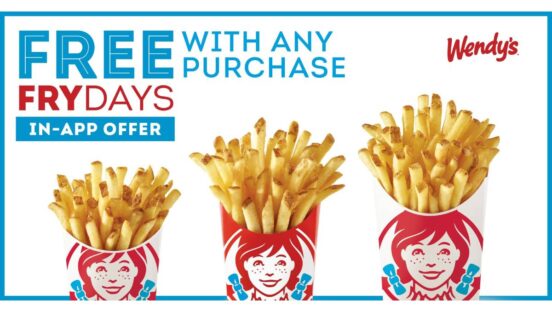Consumers are bombarded with advertisements every day, from commercials during their favorite TV shows to sponsored Facebook ads on their newsfeed.
Rather than getting lost in the shuffle, limited-service brands are looking to a new approach to marketing to increase their brand awareness and build trust with consumers: content marketing.
Content marketing goes beyond the traditional promotions, menu development shout-outs, and marketing campaigns and provides a brand’s customers with content and information that they actually need and want.
“We are trying to build relationships with our customers over a long period of time, and in order to do that effectively, we need to be delivering remarkable, amazing, and helpful content to them on a consistent basis,” says Joe Pulizzi, a content marketing consultant and founder of the Content Marketing Institute.
“Instead of interrupting them with messaging about sales, coupons, and products, we want to keep that relationship going by giving them content that they care about and can use.”
Though blogs are often the first thing that come to mind when the term content marketing is thrown around, anything that provides information is content marketing, whether it’s videos, events, print magazines, articles, or newsletters, Pulizzi says.
Even a smartphone app such as fast casual Zoës Kitchen’s L.I.F.E. app, which provides tips and nutritional information to help people meet their life goals, falls under the category of content marketing.
Many quick serves jump into content marketing and create content because there are so many channels available, Pulizzi says. “That is the worst reason in the world to create content,” he says. “You need to really figure out how each piece of content you create is going to help your customers improve their lives or their jobs.”
One of the most important requirements of influential content marketing, Pulizzi says, is providing information that is useful to a concept’s specific customer demographics. “You should also focus on who your target customer is and what their needs are,” he says.
“If a restaurant is geared toward families, then create content about kids, having fun, and even birthday parties,” Pulizzi adds. “But if you cater a lot of weddings, then you should talk about topics that brides are interested in. You have to put the focus on who is your customer and what are their interests, then use that as your starting point.”
It’s also important that any form of content marketing is used genuinely, rather than as thinly veiled advertising attempts, says Chris Arnold, a spokesman for fast-casual Mexican chain Chipotle.
“Customers are increasingly wary of being marketed to, and people are skeptical of brands because they realize it is an effort to persuade them,” Arnold says. “Content that is an effort to inform rather than sell will be received completely differently.”
The first step for quick-service restaurants when experimenting with content marketing, Pulizzi says, is to nail down a content-marketing mission statement before creating a single piece of content.
“I tell brands to figure out what story the brand tells, how they can be remarkable in that story, and how they can be the leading informational provider with that story,” he says.
Once brands have determined what story they want to tell and the type of information their customers want, the next step is determine how to deliver the content, Pulizzi says.
“Blogs are great because they are easy and affordable to create,” he says. “Both search engines and social media love blogs, which makes them easy to share.” Pulizzi says a brand blog should be created with a specific purpose and as part of an overall content strategy using a variety of media.
Informational content, such as Chipotle’s “Food with Integrity Facts” page on its website, can also be effective content-marketing deliverables, he says, adding that Panera Bread also uses content marketing effectively on its website by providing information about the sous vide cooking technique and antibiotic-free turkey.
Videos are a great way for quick-service restaurants to provide interesting and unique content marketing, Pulizzi says, whether it’s a video showcasing how a particular menu item is prepared or healthy living tips.
Chipotle has seen its share of success using videos, including “Back To The Start,” a two-minute animated film that received 7 million views online, received multiple awards, and was shown before the Grammy Awards in 2012. The only mention of Chipotle was in the closing credits.
“More importantly, the film highlighted issues that are important to our customers and sparked a lot of discussion,” Arnold says. The brand is also working on a satirical television show that speaks to issues surrounding industrial agriculture, he adds.
Jeni’s Splendid Ice Creams uses video and photography as one of its primary forms of content marketing. “On any given day, you may see us making marshmallows from scratch or processing strawberries and then roasting them,” says Ryan Morgan, social media director for the brand. “We may also be shucking sweet corn by hand in our kitchen to make the Sweet Corn Black Raspberry ice cream, or making ice cream sandwiches by hand.”
The brand also includes videos of its farmer partners, telling their stories or following their produce from the farm to the cone. Morgan says that by providing this level of content to the customer, fans feel like they’re a part of the ice cream–making process. It also helps them understand the effort that goes into making the premium product served at Jeni’s.
“We have nothing to hide. We open up our doors,” Morgan says. “You can see how we’re making this product and … that openness [has a] powerful impact upon people who like our brand and our ice cream and who want to believe in it.”
Pulizzi says Jeni’s storytelling mentality is likely the reason it has blossomed from a small chain to the multiunit chain it is now.
While many brands already sponsor community events or hold special occasions for self-promotion, events that are created specifically to educate or entertain the customer as part of the brand’s mission also fall into the content-marketing bucket.
[pagebreak]
For the past three years, Chipotle has hosted Cultivate Festivals with the purpose of educating the consumer on wholesome food and environmental issues. During the day-long event, attendees listen to live music, learn about pasture-based agriculture, attend demos from celebrity chefs, and eat food prepared without processed ingredients.
Effective events can even be staged on a smaller scale, like an event to teach customers how to prepare a specific food, Pulizzi says. Virtual events, such as an issues-based Twitter chat or webinar with an expert on a particular topic, can also help educate customers and build trust in a brand while being more affordable.
“Events, and content marketing in general, really need to happen in a very genuine way,” Arnold says. “Any company could buy a sponsorship, but we have credibly built this from the ground up as a reflection of who we are, instead of buying into something that is a reflection of who we want people to think we are.”
Because many brands try to pass off advertisements as content marketing, Arnold says, Chipotle tries to engage with guests through education to create a relationship that isn’t self-serving.
“Our content is designed to be [more] significant educationally and politically than commercially,” he says. “Our content plays aren’t designed to drive people into our restaurant, but to educate people and stimulate conversation.”
Talking about the brand rather than focusing on the customers, especially in terms of telling customer stories, can ruin content marketing efforts, Pulizzi says. He points to Subway’s use of spokesman Jared Fogle’s story as an effective piece of content marketing.
“Jared’s journey is fantastic because they have been following a customer for 15 years, which is amazing consistency,” Pulizzi says. “Subway has also leveraged it into their paid advertising and created a ton of content that people can use to educate themselves.”
For example, in addition to Jared’s story, Subway’s website has pages dedicated to providing expert advice on nutrition and healthy living, including topics such as talking about fitness with kids and improving the health and appearance of skin.
Because social media provides content opportunities, many brands confuse social media with content marketing, Pulizzi says, but not all social media posts are content marketing. However, as Jeni’s Splendid Ice Creams has discovered, a strong social media presence and effective marketing strategy is essential to successfully using content marketing.
“If you use hashtags correctly and use the right channel for distribution, you will increase the number of people who see the content. You can also increase the spread of the message by sponsoring or promoting your content on social media,” Morgan says. “We’ve quickly found that if you put out interesting content and optimize it, it will become amplified.”





